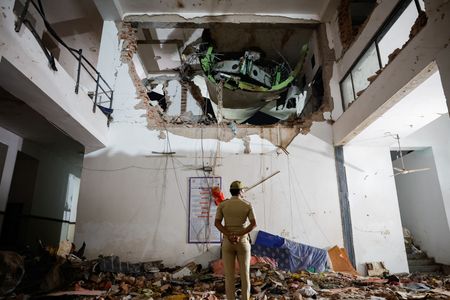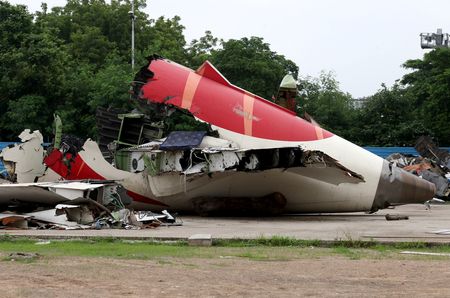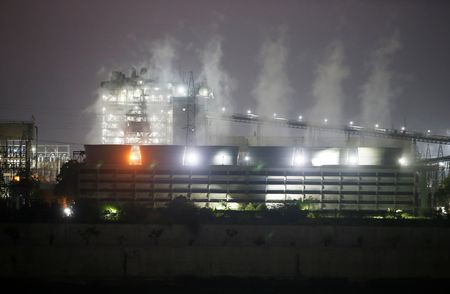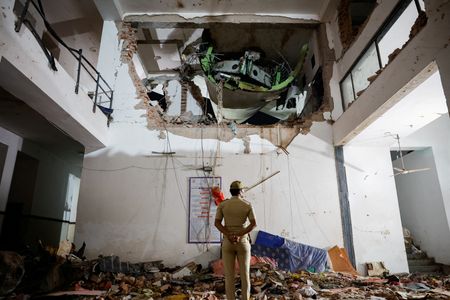By David Shepardson, Abhijith Ganapavaram and Allison Lampert
WASHINGTON/NEW DELHI/MONTREAL (Reuters) -The U.S. Federal Aviation Administration and Boeing have privately issued notifications that the fuel switch locks on Boeing planes are safe, a document seen by Reuters showed and four sources with knowledge of the matter said.
The FAA’s Continued Airworthiness Notification on July 11 came after a preliminary report into Air India’s Boeing 787-8 crash, which killed 260 people last month, raised questions over engine fuel cutoff switches.
The FAA’s notification to Civil Aviation Authorities, seen by Reuters, said: “although the fuel control switch design, including the locking feature, is similar on various Boeing airplane models, the FAA does not consider this issue to be an unsafe condition that would warrant an Airworthiness Directive on any Boeing airplane models, including the Model 787.”
When asked for comment, the FAA said it did not have anything to add beyond the notification.
Boeing also referred to the FAA notification in a Multi-Operator-Message sent to the airlines in the past few days, which said the planemaker is not recommending any action, two of the sources with direct knowledge said.
When asked for comment, Boeing referred Reuters’ questions to the FAA.
The preliminary investigation report into the crash by India’s Aircraft Accident Investigation Bureau (AAIB), referred to a 2018 FAA advisory, which recommended, but did not mandate, operators of several Boeing models, including the 787, to inspect the locking feature of the fuel cutoff switches to ensure it could not be moved accidentally.
The report said Air India had said it had not carried out the FAA’s suggested inspections as the FAA 2018 advisory was not a mandate. But it also said maintenance records showed that the throttle control module, which includes the fuel switches, was replaced in 2019 and 2023 on the plane involved in the crash.
The report noted “all applicable airworthiness directives and alert service bulletins were complied on the aircraft as well as engines.”
ALPA India, which represents Indian pilots at the Montreal-based International Federation of Air Line Pilots’ Associations, in a statement on Saturday rejected the presumption of pilot error and called for a “fair, fact-based inquiry.”
“The pilots body must now be made part of the probe, at least as observers,” ALPA India President Sam Thomas told Reuters on Sunday.
ALPA India, in a letter posted on X, said the preliminary investigation report referred to the 2018 FAA advisory “concerning the fuel control switch gates, which indicates a potential equipment malfunction.”
In the flight’s final moments, one pilot was heard on the cockpit voice recorder asking the other why he cut off the fuel. “The other pilot responded that he did not do so,” the report said.
It said fuel switches had almost simultaneously flipped from run to cutoff just after takeoff. The report did not say how the switches could have flipped during the flight.
Two U.S. safety experts said on Saturday they backed ALPA India’s request to be observers in the probe, but said the investigation report did not suggest a bias toward pilot error.
John Cox, a pilot and former ALPA U.S. representative, said AAIB’s report seemed objective and fair.
(Reporting By David Shepardson in Washington, Abhijith Ganapavaram in New Delhi and Allison Lampert in Montreal; Editing by Aditya Kalra, Jane Merriman and Sandra Maler)











